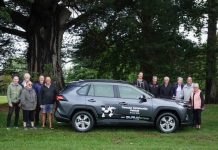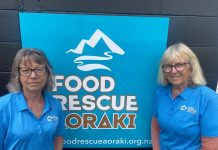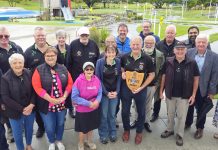
A Whānau Āwhina Plunket service that has its roots in Timaru is being rolled out nationwide.
Giving People Support (GPS) was the brainchild of retired Plunket clinical leader Raelene Todd and late community services manager Jane Denley and began in South Canterbury 13 years ago.
Since it started in the region, the service has now spread to North Otago and more recently Blenheim, along with an existing version of home help in Dunedin and Auckland that was inspired by GPS.
South Canterbury Plunket GPS co-ordinator Juliana Sargeant said the service came about as a way to create a fence at the top of the hill rather than an ambulance at the bottom.
‘‘It was recognised that Plunket nurses can do clinical visits but there is never enough time to go into a lot of detail especially when things are already going wrong and you’re trying to fix it.
‘‘As GPS, we can get in there in the early stages.
‘‘We can help with a really wide range of things, I train all the volunteers, and it’s generally other mums and grandmothers, which are ideal, and we get in there and help families with sometimes just basic things.’’ she said.
It might be that clients need support with household routines and management, or an extra pair of hands to help make life a bit easier, she said.
‘‘Indirectly we can help with financial advice, things like meal prepping and shopping on a budget.
‘‘Even, for example, if mum’s had a c-section, or like myself had to have surgeries with little kids, just having another person in the house to just hold or entertain the kids so mum can have a shower, wash her hair, lay down for half an hour without having to worry about where they are can be a big help,’’ Mrs Sargeant said.
She said she had noticed a huge shift in the use of the service since Covid.
‘‘People had that break through the lockdowns and then life’s carried on, things have opened up, all the restraints have been lifted and everyone’s just gone boom, we need to do this, we need to do that.
‘‘Financial strain is also something that’s taken a big toll on families, because now more than ever, both parents are having to work, so kids are having to get sent to day care, kindy or preschool probably earlier than parents would like.
‘‘Especially now with families trying to juggle work, kids, home life, and finances.’’
Mrs Sargeant said it was a dream to see the service being implemented nationally after initially being a client herself and seeing its importance first-hand.
‘‘I needed it years ago when I was going through cancer treatments, I had three kids under 5 and we tried every avenue for help.
‘‘We discovered that most services were means tested and we were just above that threshold even as average earners.’’
They were not able to get through to agencies for funding, she said.
‘‘I actually rang PlunketLine in desperation, and then they filtered it down to my Plunket nurse, who then rang and told me about the GPS service.
‘‘I know first-hand how the families might be feeling in that situation, and how hard it is also to open yourself to letting strangers come into your home.
‘‘After seeing it from the other side, as well as now coordinating and training volunteers it was always in the back of my head that it should go national.’’
The goal was to continue getting the service available in even more areas.
‘‘Nationally Plunket has backed the service now, they’ve got the statistics and the reports, and they can see how valuable it is. I think probably 99% of mums out there that would say, ‘yes, I struggled at some point’.
‘‘We have secured quite a bit of funding as well through companies and grants where they have seen the benefit of it. It’s a great service.
‘‘I’m constantly getting inquiries and phone calls asking, ‘can we have GPS’, and I’m like ‘I wish you could, but unfortunately it’s not in your area yet’, so I know that the need for it is 100% out there.
‘‘Bit by bit, town by town it will keep growing nationally,’’ she said.




